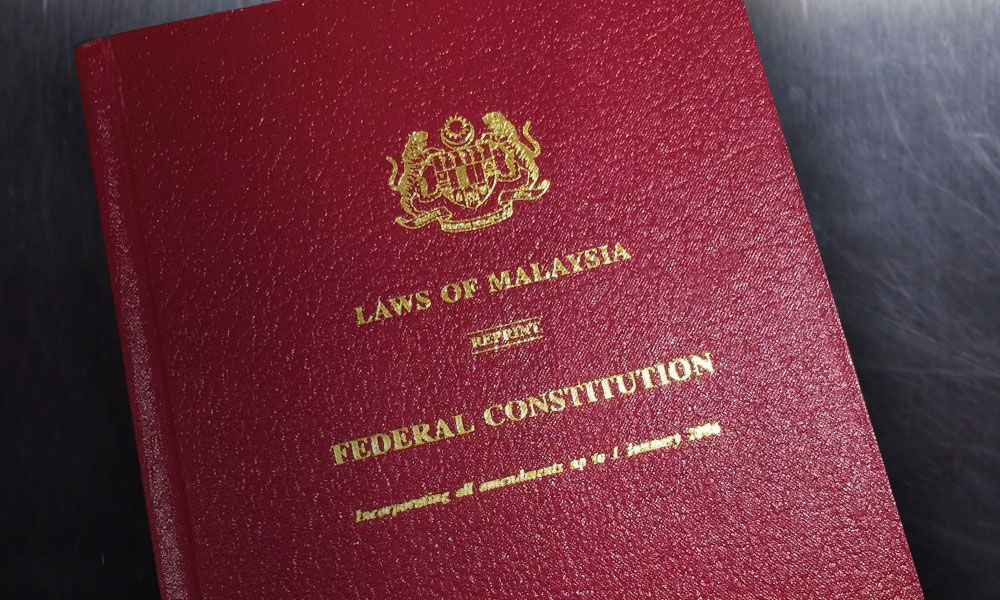LETTER | The 15th of 17 United Nations Sustainable Development Goals (SDG) is aimed at protecting, restoring and promoting sustainable use of terrestrial ecosystems, sustainable forest management, combating desertification, halting biodiversity loss, as well as halting and reversing land degradation.
Needless to say, Malaysia faces common challenges affecting global wildlife conservation. These include human-wildlife conflict, loss of habitat, illegal wildlife trade, the rise of invasive species and pollution.
The top five most endangered wildlife in Malaysia are the Malayan tiger (estimated 150 left in Peninsula Malaysia), the Malayan sun bear (estimated 1,000 left), the Malayan tapir (estimated 1,500 left in Peninsula Malaysia), the Bornean pygmy elephant (estimated 1,500 left in Borneo) and Orangutan (estimated 105,000 left in Borneo).
Malaysia’s commitment to protecting biodiversity, particularly wildlife, can be seen through international environmental conventions such as the 1973 Convention on International Trade in Endangered Species of Wild Fauna and Flora (Cites) and the Convention on Biological Diversity 1992.
Some of these international environmental conventions have been given domestic effect either through legislation such as the International Trade in Endangered Species Act 2008 and the Access to Biological Resources and Benefit Sharing Act 2017; and through policies namely the National Policy on Biological Diversity 2016-2025 and the Malaysia Policy on Forestry 2021.
There is a clear demarcation, as set out in the Federal Constitution, of legislative and executive powers between the federal and state Governments.

The division necessarily means that there is an overlap in the jurisdictions, powers and duties of both the federal and state governments when it comes to environmental-related issues.
The environmental matters and concerns fall within the ambit of three Legislative Lists found in the Ninth Schedule of the Federal Constitution.
These lists divide the legislative and executive powers between the federal and state governments according to subject matter.
List I (Federal List) sets out the subject matters over which Parliament has the power to legislate in matters concerning shipping, navigation and fisheries, medicine and health, the welfare of the aborigines and the control of agricultural pests.
List II (State List) sets out the subject matters over which the respective state legislative assemblies have the power to legislate matters relating to land, agriculture and forestry, turtles and riverine fishing and local government.
List III (Concurrent List) sets out the subject matters over which both Parliament as well as the state legislative assemblies have the power to legislate protection of wild animals and wild birds, national parks, town and country planning, drainage and irrigation, public health, sanitation and prevention of diseases.
Whilst the federal government is empowered to enter into and ratify international treaties on behalf of the federation, its implementation and enforcement within the shores of Malaysia is complicated.

In Malaysia, a treaty will become part of the law of Malaysia only when Parliament passes a statute, giving legal effect to the treaty in Malaysia. In other words, international law does not apply in Malaysia unless it is incorporated into domestic law.
The challenge arises when the subject matter of an international treaty relates to a matter that falls under List II, and therefore beyond the legislative competence of Parliament.
As an example, forests (the habitat of wildlife) come under Item 3(b) of List II (the state list). Therefore, international conventions ratified by the federal government cannot be implemented unilaterally in Malaysia without first consulting the respective states.
Even when they are adopted by the states, their implementation and enforcement for habitat and wildlife management in forests are far from simple.
For example, forest management in Peninsula Malaysia is controlled by different authorities that comprise the Forestry Department Headquarters of Peninsula Malaysia (federal department), 11 state forestry departments and 33 district forest offices located throughout the peninsular that are largely governed by the National Forestry Act 1984 and the Forestry Policy of Peninsula Malaysia.
Whereas in Sabah, the Sabah Forestry Department is responsible for forest management, control of harvesting operations and royalty payment requirements in the region.
It administers the Forest Enactment 1968, the Forest Rules 1969, the Forest (Timber) Enactment 2015, as well as the Sabah Forest Policy.
Similarly, the Forest Department Sarawak and the Sarawak Forestry Corporation are responsible for forest management and administration of forest resources in Sarawak under the Forests Ordinance 2015 (Cap 71), the Forests Regulations, the State Land Use Policy and the Sarawak Forest Policy.
‘Need tripartite cooperation’
Hence, the implementation or enforcement of international treaties in Malaysia truly depends on the cooperation of all levels of government; federal, state and local.
To manoeuvre around the fragile contours of federal-state relations, the federal government sometimes comes up with policies instead of legislation.
Whilst Malaysia has put in place various policies on biodiversity, most notably the National Policy on Biological Diversity 2016-2025; the problem with such policies is that they are neither binding nor enforceable; they are just meant to guide state governments on their respective plans and policies within their states.
To achieve the target of SDG 15, Malaysia needs to address the legal loopholes, from short-term ones to long-term approaches.
Mohammad Tariqur Rahman is the associate dean (Continuing Education), Faculty of Dentistry, Universiti Malaya (UM).
Anis Yusal Yusoff is the director of UM LEAD; former president and CEO of the Malaysian Institute of Integrity; director-general of the National Department for Good Governance and Integrity (JITN); deputy DG of the National Centre for Governance, Integrity and Anti-corruption (GIACC), Prime Minister’s Department.
Sheila Ramalingam is a senior lecturer at the Faculty of Law, UM.
The views expressed here are those of the author/contributor and do not necessarily represent the views of Malaysiakini.








 English (US) ·
English (US) ·